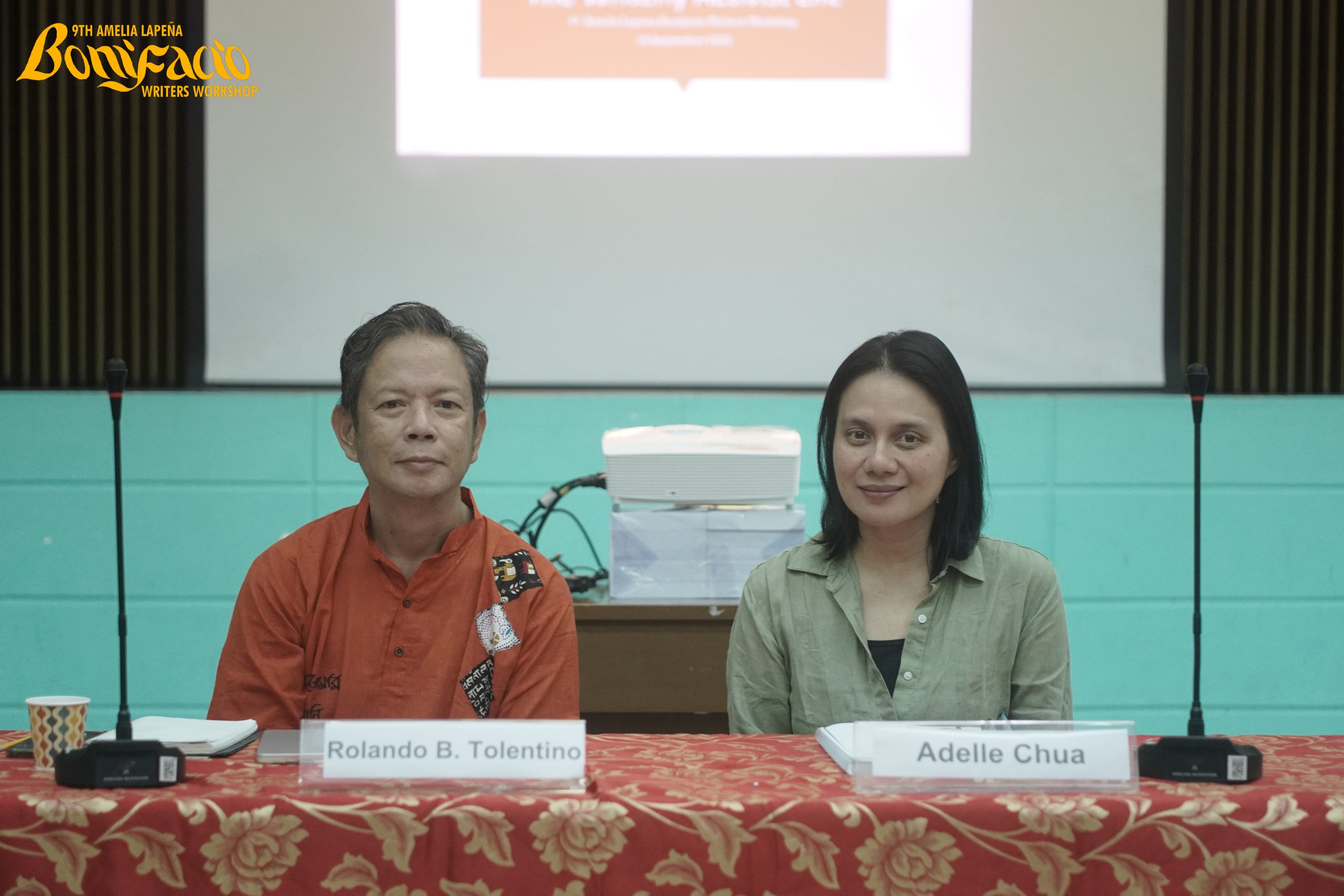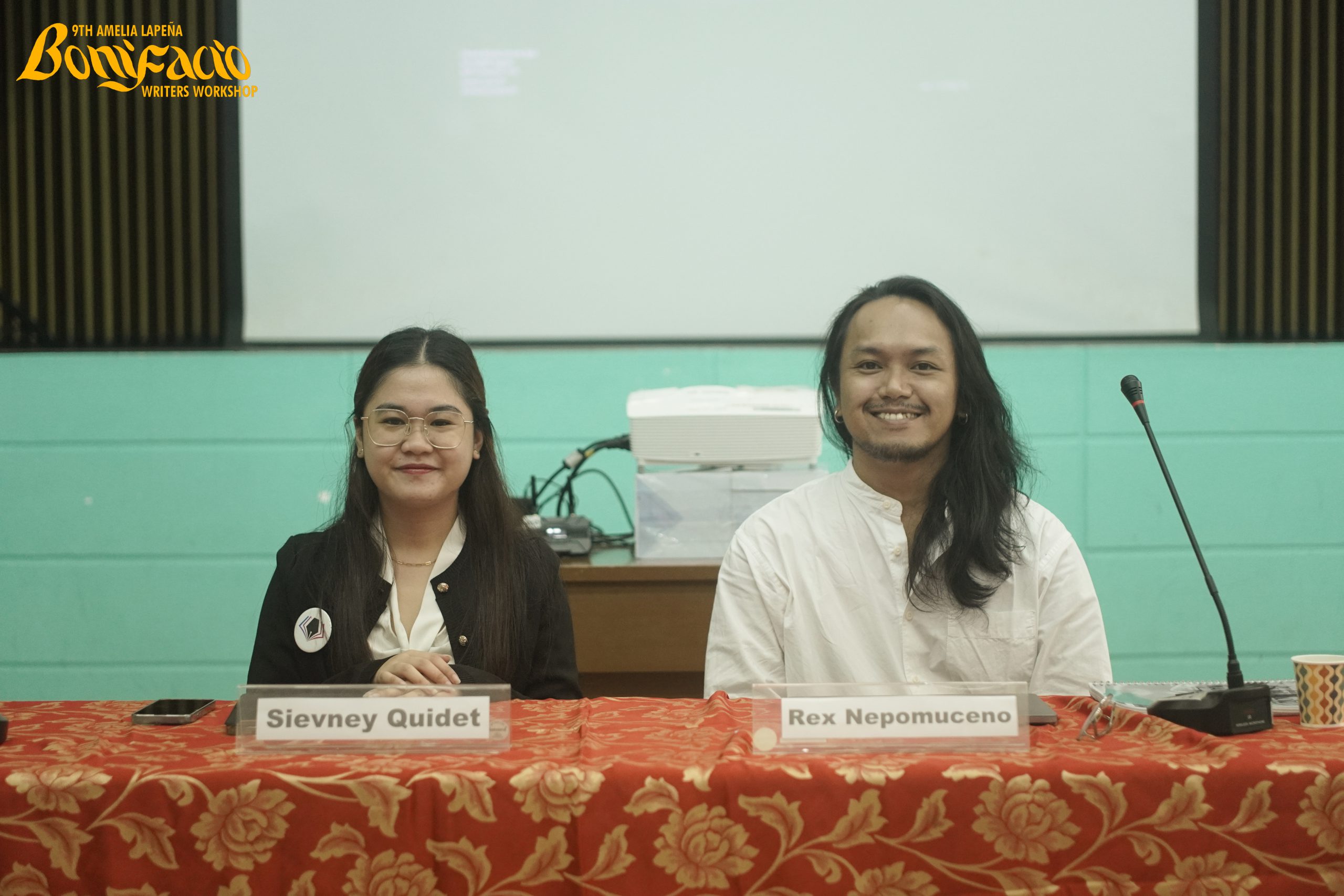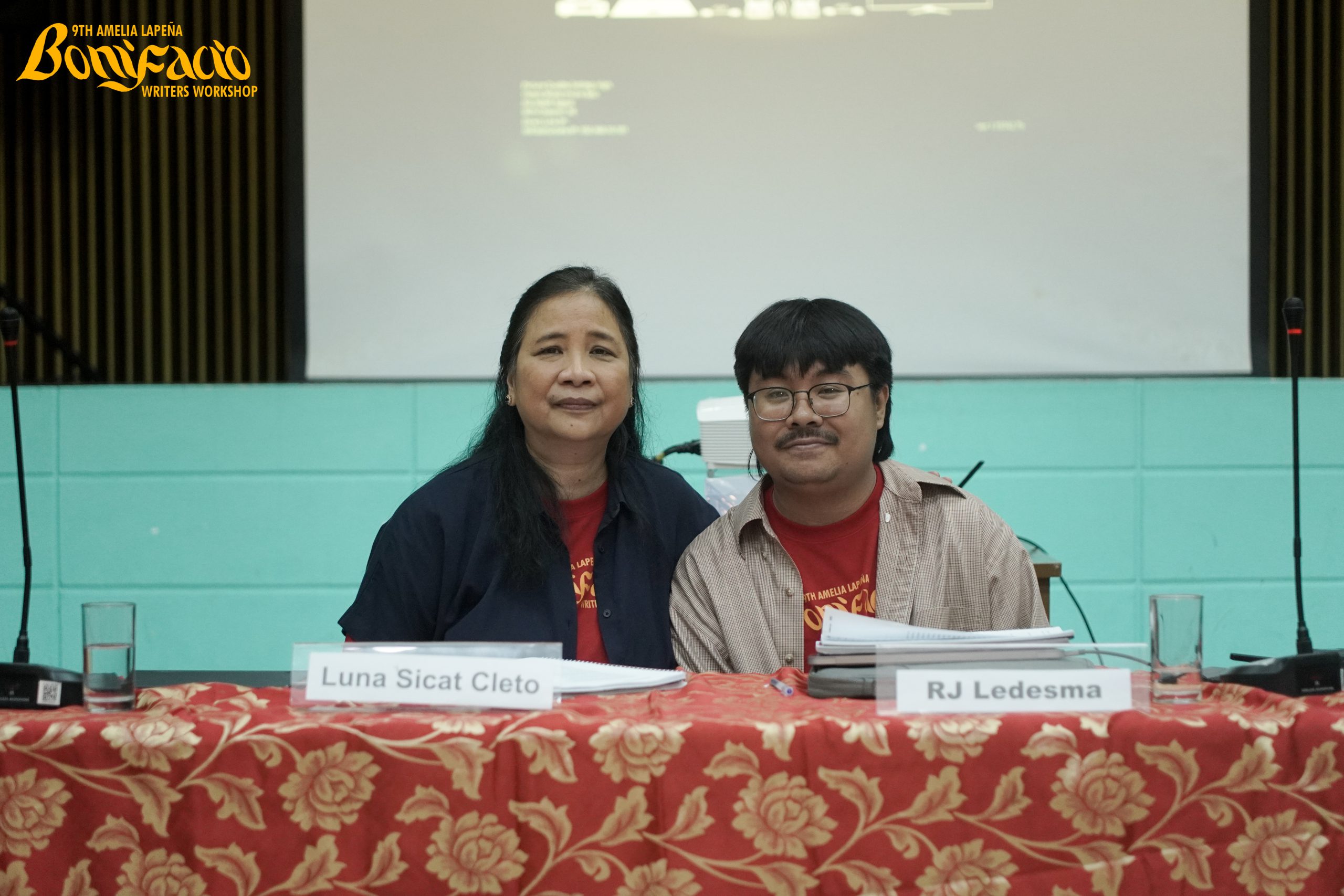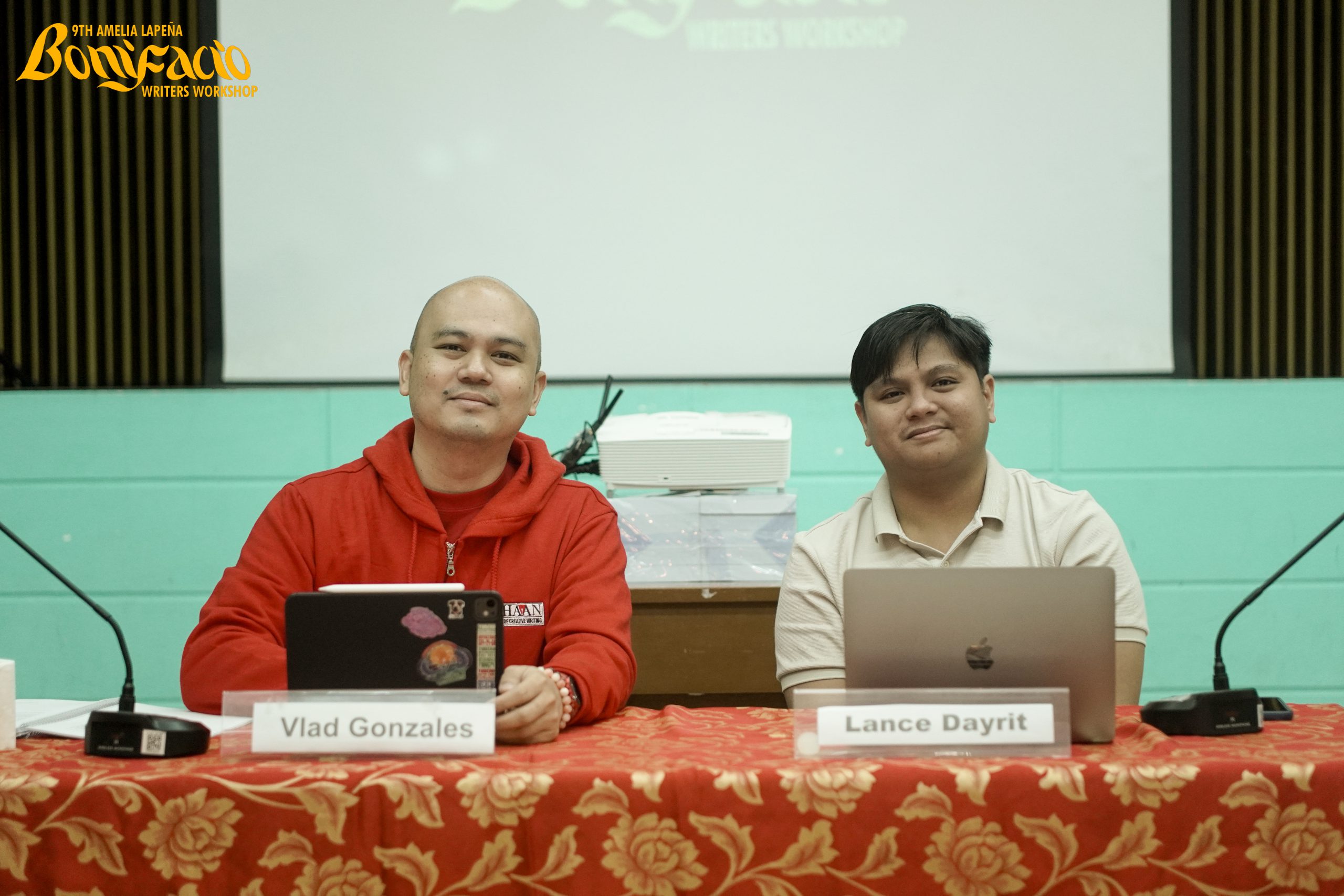Still Unspoken: Writing about and to Women
For most of my life. I spoke very little—especially to my family. I couldn’t socialize with the same ease as my sisters, to whom, I believed, being social came naturally. Because of my mental illnesses, I was hardly awake most of the time, staying asleep beyond normal hours every day. But I would frequently pull all-nighters to write short stories about women in a fictional town called Mayabo, based on my hometown Maragondon. In those moments in the dead of the night, I was alone, and yet, with only fiction as my company, I never felt more human.
In The Art of Description, Mark Doty said we are compelled to write for many reasons: as an act of naming, to solve the problem of speechlessness, and so the experience will not go unspoken. The writer is compelled to translate experience into adequate language, and the reader finds pleasure in recognizing it. I’d known for a long time that I wasn’t like my sisters, who graduated ahead of me with computer science degrees, and who escaped the financial struggles we were born into—the latter was what fractured my relationship with them as we fought each other for scraps throughout our childhood. In my loathing, I promised myself I’d cut them off once I graduated. Perhaps I should be thankful it took me thirteen years to get my sablay, because I had enough time to reconsider.
At the 2nd GlobalGrace-UP National LGBTQ Writers’ Workshop in 2019, one comment I received about my short stories, “Death for Serafina” and “Here Come the Women”, was that “the author does not write about herself”, because my main characters were widows over the age of forty, while I was very much an unmarried, childless woman in her late twenties working toward her undergraduate creative writing degree. I found this amusing because the first story drew from the dynamic I had with my younger sister, Janel, when she accompanied me to my conference presentation in Indonesia as my guardian—my resentment that she was viewed as more responsible and successful, that she used to team up with our older sister Ate Naji in making me cry, and how, in the end, I reluctantly accepted her into my life. The second story was partly based on my mother’s struggles raising us by herself and using her cooking to earn extra income for us, because my father, despite being alive, was at best totally useless and at worst abusive. The stories were published in 2018 and 2021 respectively, but none of my family were readers, and I remained, as always, an anomaly.
During the pandemic, my new psychiatrist changed my medication for bipolar disorder. He had wanted to in late 2019, expressing how the SSRI my former psychiatrist prescribed was not recommended for bipolar depression, but I was unwilling to test out a new treatment regime just weeks before my flight to India for a writing residency with Sangam House. I didn’t see him again until halfway through 2020 via teleconsultation, when I couldn’t endure being awake for only a couple of hours per day, feeling no pleasure in life—there was nowhere to go but up, I thought. Without the pressure of graduating for the time being, it was the perfect opportunity to experiment. What was the worst thing that could happen—that I’d become depressed?
For the first time in my life, I was stable. At that time, I quarantined in an apartment in Teacher’s Village with Janel. Ate Naji and her husband would visit on weekends to take care of the plants my sisters were selling on Instagram. In the few instances that the lockdown was lifted across regions, my mother would stay with us for a few days, bringing our brothers with her from Maragondon. Once, when I was in the bedroom, I overheard my mother and sisters in the kitchen. Situations like this would have triggered my paranoia and anger, as I would completely believe they were talking behind my back about how much of a failure I was. Instead, my mother was asking in confusion why I was awake. The depressive lethargy used to be so severe that it seemed miraculous to see me not knocked out.
The biggest change with my new treatment, as it turned out, was my relationship with my older sister. Ate Naji got married in 2018, and when she’d invited me to be part of her entourage, I was sure it was because Janel suggested it, so I wouldn’t feel left out. We had nothing in common and nothing to talk about; since her very first salary, she stopped coming home regularly. I begrudged her for many things, like the bullying she never apologized for, her destructive behavior whenever she didn’t get her way, how selfish she was for escaping when we couldn’t.
After the new medication, it was as if my mouth was making up for all the decades I was introverted. I couldn’t stop babbling. Across the table over lunch, I saw the shock in Ate Naji’s eyes as words endlessly spilled out of my mouth, more words than I’ve spoken to her our whole life. First, I was awake for long hours. Now, I had become uncontrollably talkative. My family didn’t know who I was—but they were very quickly becoming acquainted with the new me; they didn’t have a choice, and neither did I. On an ordinary day, over cups of milk tea, I came out to Ate Naji and her husband as bisexual.
As a family, we’d always thrived in the unspoken. We went through the traumas of poverty, a haunted ancestral house, and an abusive, adulterous father—all without talking it out, except for that one climactic time we stood together and hurled curses at our father before kicking him out our lives for good. It is easy to surmise that I write as a form of expression. That might be true to an extent—I had the backstory to fill up the expectation and an obvious compulsion for repression.
The new treatment regime, while effective in stabilizing my mood, was not able to address why I’d stopped writing and reading. However, it paved the way for identifying symptoms outside of bipolar: Attention-deficit/hyperactivity disorder, or ADHD, explained how it was not my insurmountable laziness, as I had come to believe, that stunted my life. My brain’s inability to release dopamine meant that I must seek it elsewhere, becoming more desperate over time for speedier releases—so much so that even things that used to give me pleasure, like writing and reading, felt too laborious, borderline impossible. By 2019, writing fiction became impossible to sustain that I turned to poetry, because each draft was a dopamine hit, unlike my fiction, which took months or years for me to be satisfied with. I became a poet because of how severe my ADHD was. If it seemed like I burnt out from writing fiction, it was not the first time—I’d long stopped making art.
Before I was a writer, I was an artist; drawing was a parallel language to my first, my way of expressing things as a child. Around 2013, I left a more lucrative path in life—four or so years in architecture that made me miserable. We were not rich; my father had been forced to retire before I’d gone to college, while my mother was a stay-at-home-wife. To make ends meet, the whole family baked brownies and crinkles on the weekends to sell to hospitals and schools in Cavite and Laguna, the days my professors expected me to dedicate to assignments. On weekdays, I drew floor plans, elevations, and renderings over sleepless days. Overworked and stressed, I developed a hatred for drawing—I resented it even more as I lost time for writing.
I thought being a writer was the only decision I had any control over. Pivoting my life to study creative writing meant starting from scratch and wasting the amount of money my parents had already sacrificed. They didn’t understand why I wanted to write, because they were not readers. Although uncertain of my own commitment, I told my mother that I needed to write so that I would not kill myself. In 2013, I managed to shift to creative writing. But all the semesters I had to drop or my leaves of absence felt like the universe telling me I made the wrong choice, that I was not cut out for this—how dare I want this, when I was not born with money. I didn’t have enough allowance each week, my psychiatric treatment was expensive, my weekends were reserved for our baking business and not studying, and for whatever reason, even the things that brought me joy required too much effort.
When COVID-19 put the world at a standstill, the pause gave me a chance to stop rushing and simply sit down. One thing was clear: I was losing my poetry the same way I was losing my fiction and art—or so I thought, because the realization that I may have had ADHD all those years confirmed that I lost my art already. Treatment could have saved it. That broke me; I didn’t want to lose writing the same way.
A week into 2021, I received my official diagnosis and a prescription. Within an hour of taking a tablet, my mind quieted down in what I could only describe as an overly crowded, narrow corridor, from which a handful of people yelled directions at me over the din, but in instant, they dispersed, leaving nothing but pure silence, allowing me to think with utmost clarity for the very first time. I was unaware that, throughout my life, my mind was constantly loud, until it wasn’t.
Within a few months, I wrote a new short story. Then another. The following year, I finally graduated.
While in quarantine, before the ADHD diagnosis, I spent at least ten hours a day playing Animal Crossing: New Horizons, where I built, in over a thousand hours of gameplay, a simulacrum of the musty probinsya I’ve always written about and, across a river, the soot-covered, deteriorating cityscape of Manila. I was never a fan of the cutesy cottagecore trend among most players, and customization allowed me to express dirt, rust, and chaos: in the province, cockroaches along the palengke’s aisles, a lamay with karaoke and tong-its, the loud colors of the perya, and an ukay-ukay next to a beerhouse; in the city, a porn theater showing Hiram and Itlog in classic bomba film fonts, a labyrinthine path through urban settlements, the perpetually-in-construction Skyway, and a Sogo hotel. The island’s name, Dolorosa, draws from the title of my unpublished short story collection, Provincia y Dolorosa.
Provincia y Dolorosa revolves around women in the rural Philippines who resist colonial, catholic womanhood: intelligent, independent, great, mythological, ghostly women, women who care about other women, and women who love other women. All anchored in the same town of Mayabo, they vary in time period, tone, mode, and realism, while embodying my multilingual, translational poetics—what I refer to as mustiness. My obsession with Animal Crossing did not escape my writing sensibilities; my inexplicable inability to write forced me to build my literary world in the game, whose western orientation did not pose a barrier to my thoroughly Filipino manner of playing. It was the same challenge I viewed writing in English as a Filipino.
I was always deeply preoccupied with connecting with the Filipino audience—the reader who reads my writing in English, and myself who is reading Philippine literature in English. In my undergraduate thesis, I focused on my poetics of mustiness as necessary for writing narratives of Filipino womanhood in the rural, specifically in Maragondon through Mayabo, while using a colonizer language. Mustiness recalibrates the English prose with the goal of reducing the alienation that writing and reading in this language entails, by way of translation and intimate grounding of setting.
One strategy I use is what I call the two-level readership, influenced by Brian James Baer’s critique of cultural translation and untranslatability and their elision of the fact of translation, as well as Corazon D. Villareal’s analysis of translation of Philippine literatures using the overheard theory. In mustiness, the overheard theory provides structure to signal the fact of translation. With the two-level readership, the Filipino reader is not alienated through the familiar use of local terms and grammatic peculiarities without italics while the international, non-English speaker is just overhearing the multilingual, translational narrative with an understanding of almost everything—local words and phrases whose English equivalent is inexact, whose meaning can be partially derived from the visual appearance on the page, similarity with Spanish, surrounding contexts, or incomprehensibility itself—which is to say, there is meaning in incommensurability, benefiting both levels of readers separate experiences when engaging with my writing. The disruption of the monolingual English prose reduces alienation and captures the Filipino sensibility more effectively.
My manuscript, Vestments, is tropical gothic story exploring the trauma of existing in society as a fat lesbian woman, literalized in folk body horror. Like my other fiction, it evokes strategies of mustiness and especially highlights local gender identities and experiences and the ways they may be undecipherable to a western reader (but familiar to a Filipino reader). Mabi, the lesbian main character, was raised by Mamita El, a bakla seamstress of liturgical vestments, who left the seminary after they had an affair with a tomboy, who, in turn, went on to be an OFW after giving birth. Mabi has a crush on her Manileña friend, a butch named Saleng, whose short hair and tattoos confuse even locals—when asked if she were a boy or a girl, she replies, “Astig po.” The narration, in an attempt to capture the neutrality of “siya”, uses they/them pronouns for Mamita El. In the unfolding of events, the story follows how Mabi is driven into madness as she struggles against the heteropatriarchal expectations in Filipino society.
The kind of women and feminized characters I write about assert their existence in this place and culture—we’ve been here the whole time, despite attempts at pushing our narratives to the margins, the same way the past persists in the present, folk belief in catholic faith, native in colonial. We take what is dominant, adapt, and talk back, yet at the same time, talk with. Rather than express, I write to engage. I write to understand and be understood—find connection with people in the same community, particularly the women around me, like my mother and sisters, for whom the spoken language fails, but in hope that the written word lasts us longer.
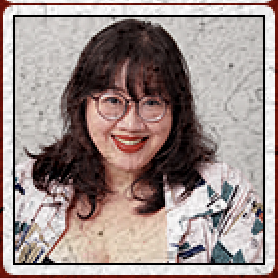
ABOUT THE AUTHOR
Rayji de Guia is a fictionist, poet, and illustrator. Her work can be found in Asian Cha, The Deadlands, harana poetry, Journal of English Studies and Comparative Literature, The Pinch, Makiling Review, Likhaan 17, and elsewhere. She has received first prize for poetry in the 2nd Gémino H. Abad Awards for Poetry and for Literary Criticism and second prize for the short story in the 69th Carlos Palanca Memorial Awards for Literature. In 2021, she was a fellow for fiction in the Bread Loaf Writers’ Conference. She was a writer resident at Sangam House in 2019, Rimbun Dahan in 2022, and CMI Arts Initiative in 2023 with support from Asia-Europe Foundation and Cambodian Living Arts (ASEF-CLA), Para Site, artlink.ch, and Südkulturfonds. She is from Maragondon, Cavite.


